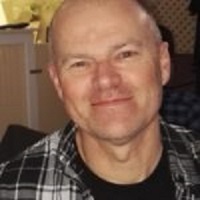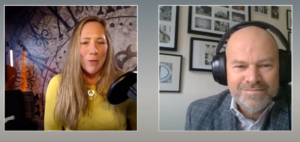
Professor John Butcher is the Director of Access, Open and Cross-curricular Innovation at the Open University. In this post, John reflects on his own experiences of being a learner and some of the barriers that he had to overcome.
I remember the first time I was asked to appear as an interviewee on SHL (Karen was very persuasive). It was quite early in its history. SHL seemed a bold new innovation for the OU in seeking to connect with students, in lieu of a conventional university’s Fresher’s Week. I was talking about how new students might enhance their confidence and learn how to learn in higher education by taking an Access module. It was a topic I lived and breathed – my role as Director of the Access programme involved me speaking at international conferences and arguing for the effectiveness of the Programme at Vice Chancellor’s Executive (the Open University’s senior management team). And yet, I remember being extraordinarily nervous about being filmed live. I secretly rehearsed (to no particular end other than duping myself I was prepared), scribbled notes to remind me what to say, and worried about where to look, what to do with my hands, in what position to sit…

Despite my worries, it ended up being an enjoyable experience and over surprisingly quickly. But it did lead me to reflect on why I had felt such trepidation. There is undoubtedly something challenging about finding oneself in an unfamiliar environment, a situation in which other people have more experience than you and know the ‘rules of the game’. The producer, the interviewer, the camera operative were all used to being in a broadcast studio environment. I was not. I was concerned that I would look like a fish-out-of-water, that my inexperience would be found-out and that I would be revealed as an imposter. The reason I got through the 20 minutes broadcast, and have since enjoyed appearing on SHL many times, was down to the support of more experienced colleagues, lessening and partially mitigating the challenge.
It strikes me this is very analogous to the experience of new students in higher education. I remember beginning tutoring for the OU in 1992 on A102 (a forerunner of AA100) and the number of my learners who were petrified of speaking up in a (face-to-face) seminar, who were literally sick with anxiety about putting pen to paper (as it was then), and who identified themselves as not being ‘good enough’ for academic study. It took a long time before many of these students felt comfortable in their student skins. Often, it was the support of tutor group peers who kept students going, convincing them they were good enough.

It also reminds me of my own experience as a learner. I was first in my family to even think about higher education. My mother effectively left school aged 12 (broken back) and my father aged 14 (school-leaving age pre-war). Their sum total of public qualifications = nil. There were virtually no opportunities for accessing HE for working class pupils – both entered the world of work early and continued until, on one hand, my Mother gave birth to me or, on the other, my father retired from his job in an engineering factory.
My educational journey was luckier than theirs…but the problem was (looking back half a century) the quality of secondary school teaching was not what we might now consider inclusive, and I certainly had not learned how to learn (or succeed in assessment) by the time I took A levels. My parents were also fearful of the whole world of HE (despite the full grant I would receive from my local authority to fund tuition and maintenance), and understandably perceived entering work at 18 as a much safer option (earning in a secure office job in London) than the risk of studying for three years with no guarantee of a ‘better’ job. Fear is powerful barrier in education.
So, I worked for a year and saved to ensure my parents faced no financial pressure, and I applied to a Polytechnic (google them) on the basis of my thee E grades. Even then, although I loved learning, I still had not understood how to write really well and achieve what I wanted in assessment. After my degree in English and History I registered for a part-time MA in Victorian Studies (just to really render me unemployable in the early 80s recession) and still, looking back, my thesis was workaday. I had a chip on my shoulder and didn’t feel a legitimate member of the academic community. It was only when I took a PGCE, and then some OU postgraduate modules in Education while teaching, that I began to find my writer’s voice.
Just like my anxiety ahead of taking part in SHL, I did not feel confident about entering academia. I was waiting to be ‘found-out’, expecting to be asked to leave. It was not until I achieved my OU doctorate in Education, and started writing and reviewing for academic journals, that I felt I belonged.

Some learning challenges can be self-imposed (confidence) and some can be ingrained in society (inequalities in financial resources). My experience on SHL reminds me that with some appropriate peer support, at the right time, some of those barriers can be overcome. It just takes some of us longer to achieve our educational goals.
